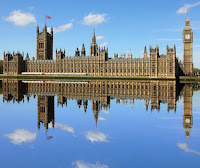Commons Statement 14 December 2021 - Human Rights Legislation - Hansard - UK Parliament
Independent Review of Human Rights Act 1998 - report - (580 pages pdf)
Human Rights Act Reform: A Modern Bill of Rights - GOV.UK (www.gov.uk) - with link to consultation document (123 pages pdf)
This post looks at Chapter 4 of the government's consultation - the Reform Proposals. There is a lot in it and what follows is, of necessity, an overview. Several of the topics covered would merit considerably greater analysis - e.g. the proposals on Freedom of Expression.
Even an initial reading of Chapter 4 shows that the proposals go far beyond what the Independent Panel considered to be required and, in some instances, the proposed reforms were not referred to or discussed by the Independent Review.
Chapter 4 is lengthy and results in 29 Questions to which any organisation or individual may respond either in full or in part.
* The basic plan *
This is to be found at paras 182 to 188.





















































